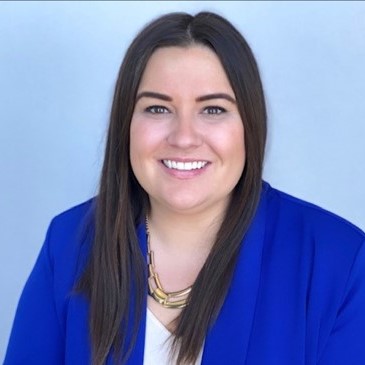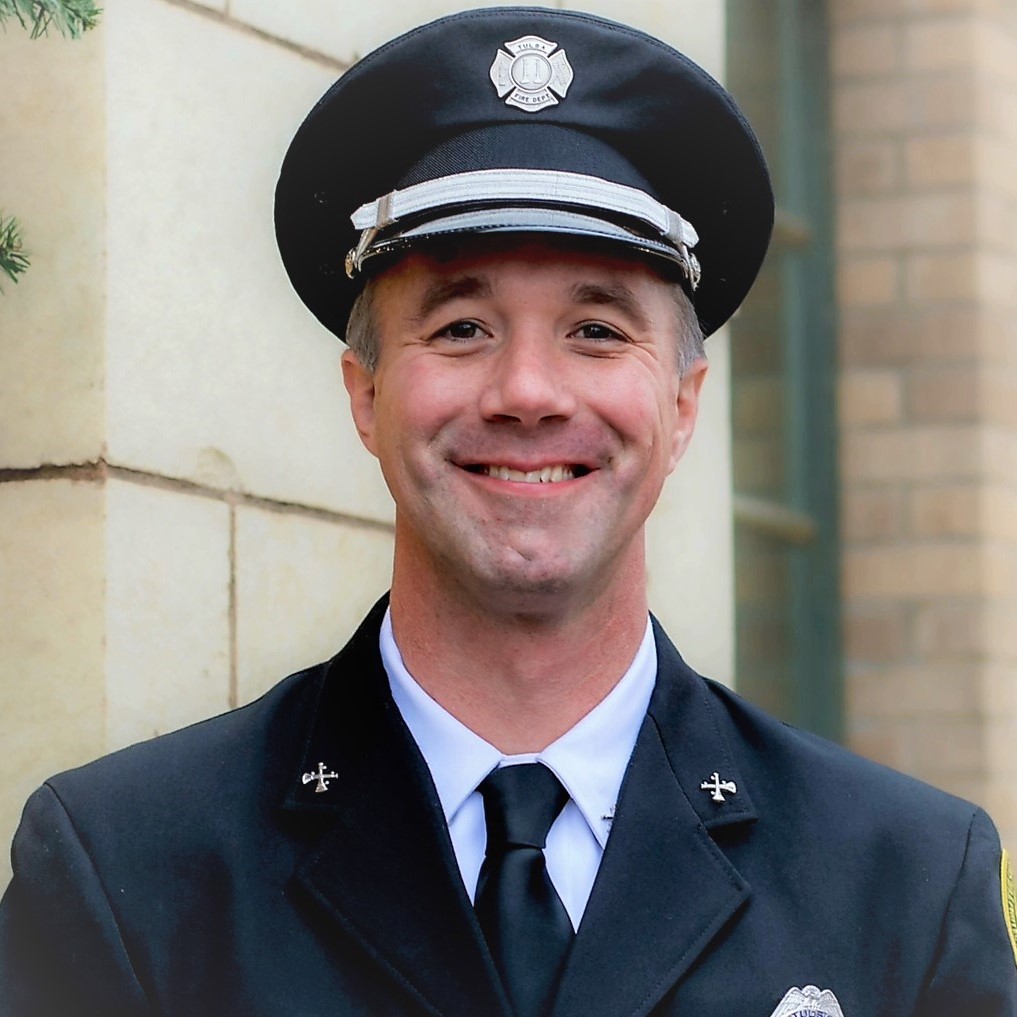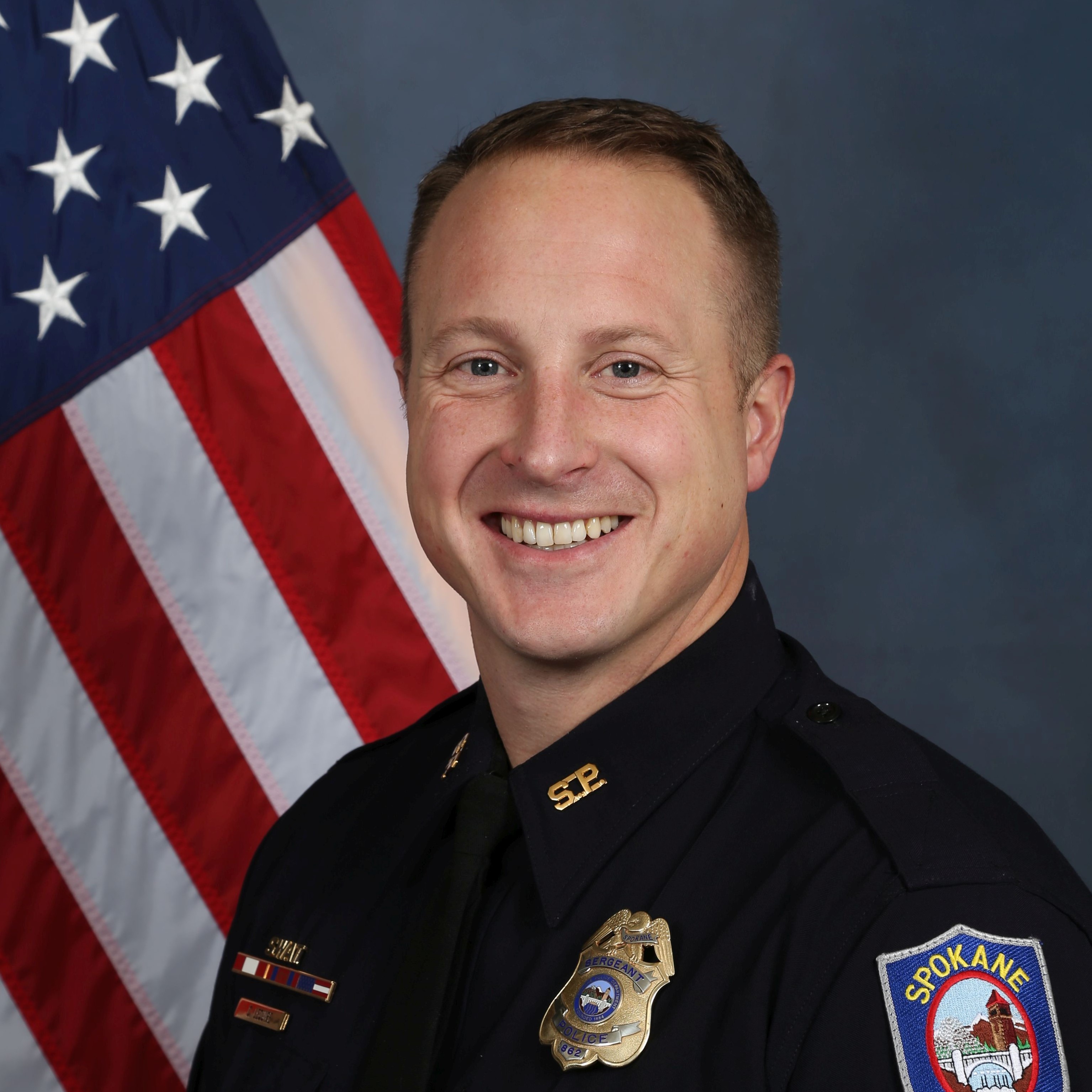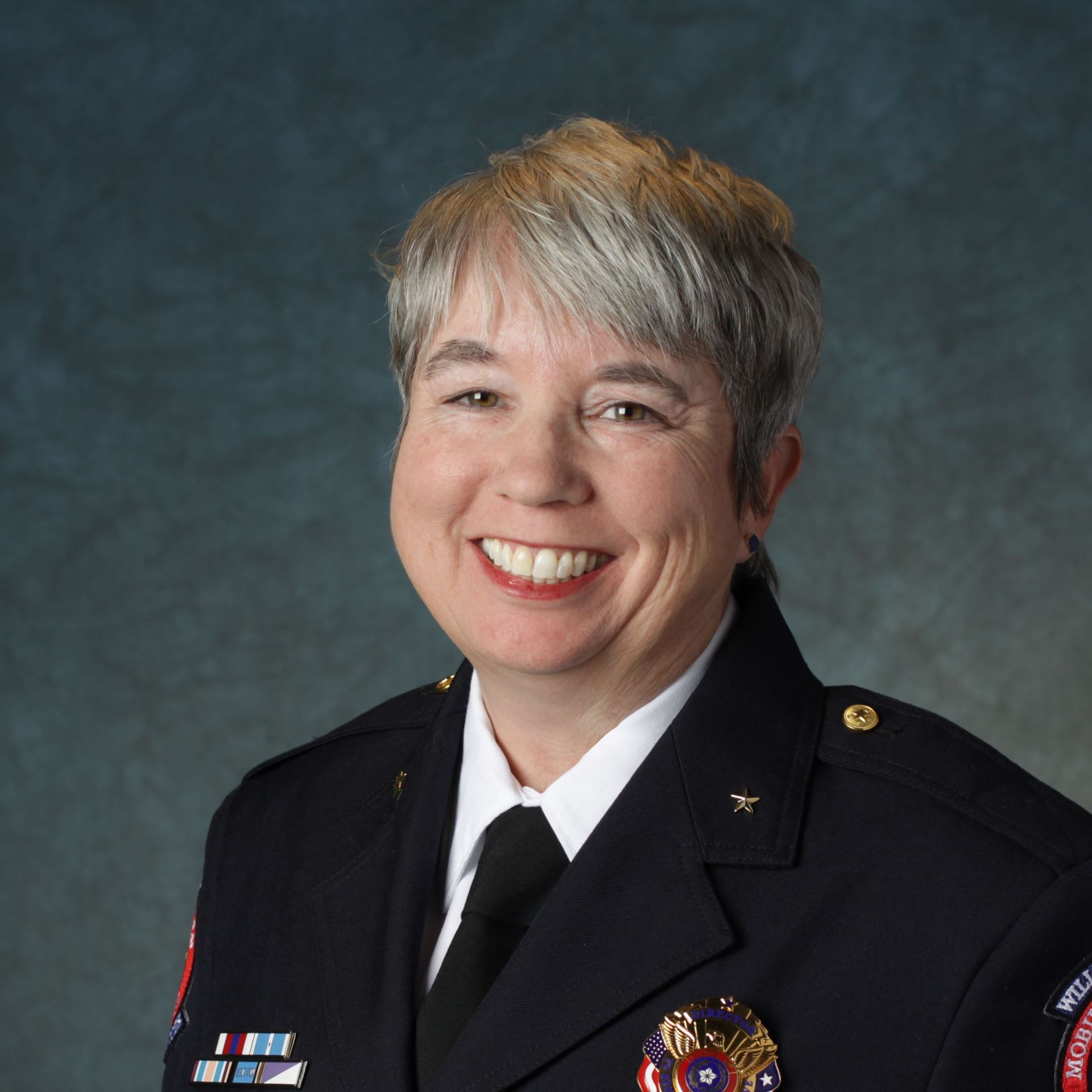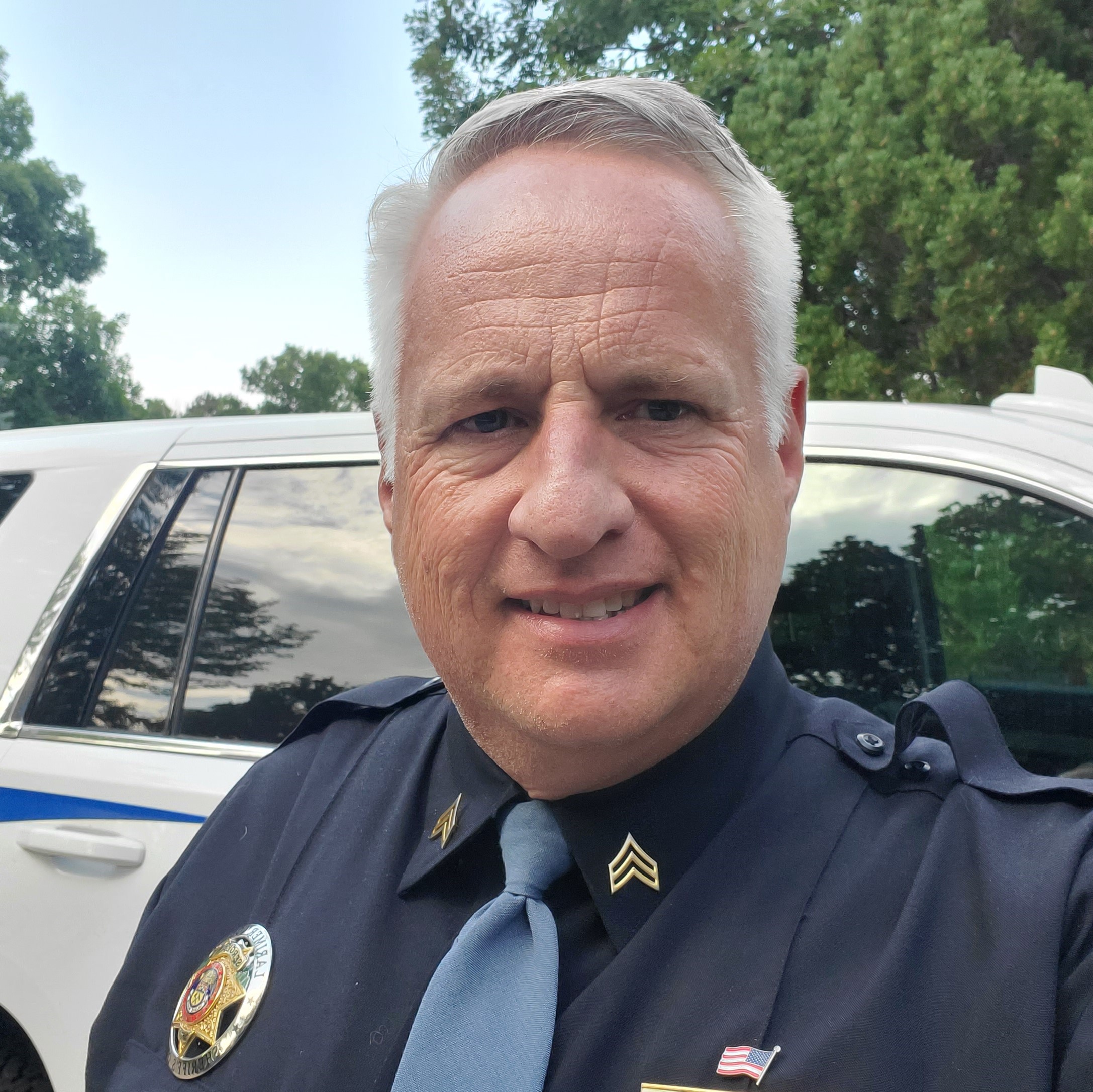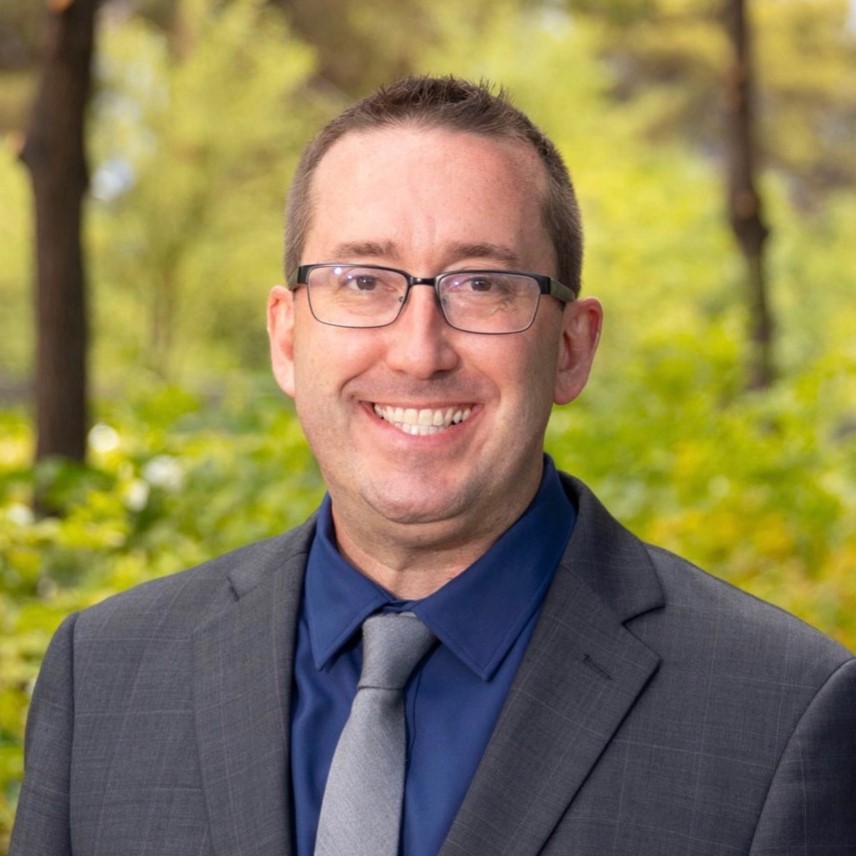| Jessica Murphy, KANSAS
Read moreJessica “grew up” in community mental health with positions as attendant care, case manager and crisis clinician. In her current role, she has helped three programs start-up, expanded four others and collaboratively launched the first school co-responder in Johnson County. The Johnson County Co-Responder program received the “Excellence in Community Service” award from the United Community Services of Johnson County, KS in 2017. Jessica received two county recognitions in 2019—the “Leadership in Action” Award and the “Pillars of Performance and Development” Award. Jessica has her Bachelor’s in Psychology from Kansas State University and Master’s in Social Work from University of Missouri-Kansas City |
| Justin Lemery, Oklahoma
Read moreJustin began his career for the Tulsa Fire Department in 2007 as a firefighter paramedic. Shortly after, he became a paramedic for the Tulsa Police Department Special Operations Team (SOT). He was promoted to Driver in 2011 and Captain in 2016. In 2020, Justin started working in the EMS Office providing special event planning, CQI, and staffing for community health programs. During this time, he went to CIT training and became very passionate about the positive impact that Co-Responder programs can have in communities. Justin began working with community health programs TFD C.A.R.E.S. and the Community Response Team to develop and improve them. Shortly after, he was promoted to oversee and provide leadership for these programs in his current position as Director of EMS. Since taking over the position, he has added three positions, written a Co-Responder Operations Manual, added a software platform for data analysis and case management, and added an additional Co-Responder program that complements CRT called ART-1. Justin develops and teaches first responders and community members about Co-Responder programs and mental health services. He has been very fortunate to collaborate with people who share the same vison: to improve community health through partnerships and innovative thinking. Justin is excited to be a part of ICRA, where this mission can be accomplished on a larger scale and pave the way into the future! |
| Jay Kernkamp, Washington
Jay Kernkamp is a Spokane native who graduated from Whitworth University. He was the supervisor of the Spokane, WA Police Department Behavioral Health Unit and its co-responder teams before shifting back to patrol duties after promoting to lieutenant. Read moreJay started his law enforcement career as a volunteer for the Spokane Police Department. This is where he has spent the last 16 years of his career. He has worked in a variety of fields including the Regional Drug Task Force, Anti-crime Team, SWAT, and the department's PEER support team. |
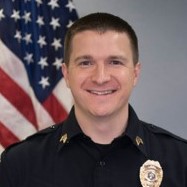 | Robert McKeirnan, Kansas
Read moreRobert started his career with the Olathe Police Department in 2009, starting in the Patrol Division. He has worked with the Field Training Program, the Explorers, Peer Support and CIT Unit. He is the agency CIT Coordinator for Olathe, KS PD and serves as the Vice-Chair of the Kansas Law Enforcement CIT Council. He began working with co-responders early in his career and teamed with them to institute mental health diversion at the Olathe Municipal Court, develop and teach courses to mental health professionals about law enforcement (Cop Culture), expand the scope of the co-responder program and develop ACT as a new unit at the police department. Robert also teaches courses for the 40-hour CIT training and Mental Health First Aid for the Johnson County Regional Police Academy. |
| Lindsay Kroll, Nebraska
Read moreLindsay received her Master’s degree in Forensic Psychology from The Chicago School of Professional Psychology. While being a native to Nebraska, Lindsay has worked in Chicago, Denver and Omaha within various forensic settings including juvenile prison, jail-based adult behavioral health programs and outpatient settings. She spent 8 years developing the continuum of Crisis Response Services with Lutheran Family Services of Nebraska to include mobile crisis response, post-crisis stabilization services, co-responder program and peer support. Lindsay is an executive member of CIT of the Heartland in Omaha. She is a Vicarious Trauma and Compassion Fatigue trainer. Lindsay currently serves as a member of the Region 6 Behavioral Health Task Force, Douglas County School Threat Assessment and Management Team, Nebraska Violence and Risk Assessment Cadre, Metro Area Suicide Prevention Coalition and is a member of the Association of Threat Assessment Professionals (ATAP). |
| Sarah Abbott, Massachusetts
Read moreAbbott Solutions for Justice LLC's mission is to advance effective and safe law enforcement responses to individuals in a behavioral health crisis. Dr. Abbott holds a bachelor’s degree in Community Work from Bradford and Ilkey College in England, a master’s degree in Criminal Justice from U-Mass Lowell, and a Ph.D. in Law, Policy, and Society from Northeastern University. In 2003, Dr. Abbott joined with the Framingham Police Department and served as the first clinician to embed in a Co-Response program in Massachusetts and has led the replication of model in an additional 20 police departments. In 2018, she designed and directed the first state-wide Co-Response Training and Technical Assistance Center. Dr. Abbott has developed and delivered dozens of law enforcement training modules, experiential workshops, undergraduate and graduate courses and has provided consultation and technical assistance on the Co-Response model internationally. She currently serves as a project implementation Advisory Group member supporting a multi-year project Co-Response program for the An Garda Síochána in Ireland. |
| Annie Burwell, Texas
Read moreHer experience includes psychiatric acute care with children, experiential therapy with adolescents, school-based mental health services, and crisis intervention and management. She has significant training in grief, loss, and trauma interventions, substance use disorders, disaster response, and crisis negotiations. She is the recipient of several awards including the Heroes in the Fight Award (Mental Health America), Outstanding Team (Central Texas 100 Club), Exemplary Program of the Year (Texas Corrections Association), and the Behavioral Healthcare Professional of the Year (CIT International). Recent presentations regarding emergency behavioral health and overdose response include: “Crisis Response - Which Model is Right for Your Community?” at the 2022 Emergency Management Association of Texas Conference, “Leveraging Paramedicine Teams to Solve the U.S. Overdose Epidemic” at the 2022 Texas Substance Use Symposium and “Managing Mental Health in EMS” a national webinar for EMSWorld in 2021. Ms. Burwell provides training at the state and national level and was recently elected to the Board of Directors for the International Co-Responder Alliance. She enjoys traveling, wandering in nature, and taking care of her geriatric horses. |
| Robert Cook, Colorado
Read moreSgt. Cook began his career in 1987 as a wildland firefighter at Larimer County Sheriff’s Office. In 1988, he became a Dispatcher for the Communications Unit. While working as a dispatcher, he attended and graduated from Aims Community College Basic Peace Officer Academy and immediately joined the LCSO Patrol Reserve Deputy Program. In 1991, he became a full-time deputy assigned to Patrol. In 1997, he was promoted to Sergeant in Patrol. He also later served in the Professional Standards Unit and Investigations-Crimes Against Persons Unit. Collaterally, Sgt. Cook served on the K9 Unit, Arrest Control Tactics Team, and SWAT. In 2004, he was promoted to Lieutenant, assigned to Patrol. As a Lieutenant, he also worked in the Executive Services Division assigned to Training, Background Investigations,Concealed Handgun Permits, Professional Standards, Fleet Services. In 2009, he retired from SWAT as the Team Commander. In 2010, he became a certified Terrorism Liaison Officer (TLO) with CIAC and built up the LCSO Team of TLOs. He joined the Colorado Chapter of Concerns of Police Survivors in 2016 as a Board Trustee. In 2016, he returned to Patrol as a Platoon Commander and began supervising the new LCSO Mental Health Co-Responder Unit. In 2019, he voluntarily reverted to his previous rank of Sergeant to spend more time in caring for his severely ill daughter. In 2019, he was also elected to be the President of the Colorado Chapter of Concerns of Police Survivors and is currently serving in that capacity. In addition to serving as a Lead TLO, Sgt. Cook is also the Assistant Coordinator of the LCSO Peer Support Team and the lead LCSO TLO. Sgt. Cook is a graduate of Northwestern Police Staff and Command School (2012), and the National College of Police Staff and Command (2019). He has also studied at Colorado State University, Columbia College, and Front Range Community College. |
Jennifer Howes, Maryland
Read moreAt JHU, Dr. Howes oversees the range of programs and clinics that provide mental health services to the JHU student and learner communities across the university, and oversees the Behavioral Health Crisis Support Team, the first 24/7 campus-based co-responder program in the US. The Behavioral Health Crisis Support Team is what drew her to this role at Hopkins, after years of interest in the intersection of behavioral health and law enforcement. Dr. Howes led the effort to expand mobile crisis response to all JHU Baltimore campuses, consults regularly with colleagues from other campuses about crisis response teams. Dr. Howes frequently presents at professional conferences and trainings on the development of campus-based mobile crisis response teams and looks forward to continuing to build the higher education network and increase connectivity with co-response teams more broadly. |
Elizabeth Reyes, California
Read moreIn 2014, she was promoted to Detective in Hollywood Area, later investigating sensitive and high-profile cases at the Abused Child Unit, Threat Management Unit, and Internal Affairs. In 2019, she returned to MEU as a Detective Supervisor and currently serves as Officer-in-Charge of the MEU Training Unit at the rank of Detective III. Detective Reyes currently leads the development and delivery of LAPD’s in-service mental health training, including managing the Department's 40-hour Mental Health Intervention Training (MHIT), which is conducted 25 times annually. She plays a critical role in shaping departmental policies on law enforcement responses to individuals in crisis or with mental illness and represents the Department in related litigation. Additionally, she serves as the primary contact for the Law Enforcement-Mental Health Learning Site Program. An advocate for officer wellness and self-care, Detective Reyes actively participates in the Peer Support Program. Through her leadership at MHIT, she fosters open discussions about mental health, shares personal experiences to reduce stigma, and encourages a culture of support and understanding within the Department. |
| Jason Winsky, Arizona
Sergeant Jason Winsky is a leading expert in the field of law enforcement approaches to mental health and substance abuse. During his 19 years at the Tucson Police Department, he has led the growth and development of numerous programs that have received national recognition for their innovative approach and positive outcomes. Read moreUnder his leadership, the Mental Health Support Team (MHST) was created in 2013 to address the needs of high-risk individuals with mental health challenges and has grown to team of over a dozen officers, detectives, sergeants, and clinical co-responders. On a yearly basis, MHST interacts with thousands of individuals, directing (or re-directing) them to treatment before the situation escalates to a crisis or public safety threat. This proactive approach has been expanded to include a substance use deflection program in which peer navigators work alongside officers to deflect individuals with substance use needs away from jail and into treatment. These programs have demonstrated positive outcomes including reductions in uses of force, patrol officer time saved, decreased SWAT deployments for suicidal barricade, and decreased jail bookings. He has recently been tasked with developing a new homeless outreach program. Sgt. Winsky is also a highly experienced educator. He is the co-facilitator of the Pima County Regional Crisis Intervention Team (CIT) Training program and a Mental Health First Aid (MHFA) trainer and has trained thousands of officers across southern Arizona. In addition, he has led the development of advanced training curriculums for MHST and other specialized teams, including Advanced CIT, Motivational Interviewing, and Trauma Informed Care. Under Sgt. Winsky’s leadership, the Tucson Police Department was recognized as a Law Enforcement – Mental Health Collaboration Learning Site by the US Department of Justice. Jason frequently speaks at national conferences related to policing and mental health. |
Zach Zepeski, Colorado
Zachary Zepeski is a dedicated law enforcement professional with extensive experience in crisis response and mental health intervention. Currently serving as a Deputy with the Douglas County Sheriff’s Office (DCSO), Zachary is a key member of the Community Response Team (CRT), a specialized unit focused on addressing incidents involving mental health concerns. Read moreAs part of this team, he partners with a mental health clinician to respond to a wide range of calls, including individuals experiencing mental health crisis, welfare checks, and citizen assistance requests. With a career spanning over a decade, Zachary has demonstrated a deep commitment to enhancing both law enforcement operations and community well-being. Over the past five years, he has played an integral role in the development and growth of the CRT, including the introduction of DCSO's first Co-Response Therapy Dog, Olive. His passion for mental health advocacy has also led him to become a Crisis Intervention Training (CIT) Director and a respected instructor in Officer Survival, and Officer Mindset, roles in which he shares his expertise through public speaking and training initiatives. In May 2022, Zachary co-founded the Colorado Co-Responder Alliance (COCRA), an organization designed to unite and support Co-Responder teams across Colorado. As Vice Chair of COCRA, he works to provide valuable training, resources, and information to Co-Responder teams statewide, ensuring that they are well-equipped to serve the diverse needs of Colorado communities. Zachary’s career is further marked by his commitment to professional development. He holds an Associate of Applied Science in Law Enforcement from Red Rocks Community College and is pursuing a degree in Sociology at Metropolitan State University of Denver. His training includes multiple leadership and crisis management programs, such as the FBI LEEDA Leadership Trilogy, as well as specialized certifications in de-escalation, officer survival, and peer support. Throughout his career, Zachary has been recognized for his leadership and dedication to public safety. He has received two Life Saving Awards and was named Academy Instructor of the Year in 2023. His communication skills, both with leadership and community members, are one of his key strengths, as he regularly presents to government officials and outside agencies with clarity and professionalism. In addition to his law enforcement duties, Zachary contributes to the community as a committee member of Irish Angel Inc. and continues to mentor and support his peers and colleagues |
.png)
